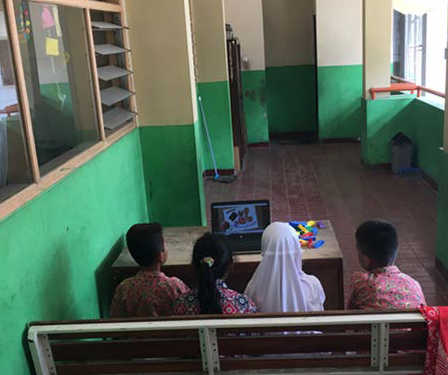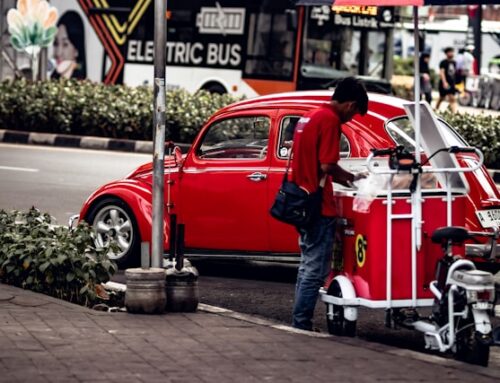Indonesia is seeing increasing consumption of processed foods and falling intakes of fruits and vegetables. This nutrition transition contributes to childhood overweight, calling for evidence-based policy interventions. We run a mechanism experiment to inform policy interventions in developing countries that aim to prevent childhood overweight via improving snacking. Children participated in a snack choice, predictive of overweight at baseline. We expose some children to emoji labels encouraging healthy snacks, while others observe healthy or unhealthy snacking by peers. While emoji labels moderately promote healthy snacking, the adverse effect of observing a peer eating the unhealthy snack is very large. The effect associated with observing a healthy peer is insignificant. Additionally, cross-randomized blocks of children watched a nutrition video to study the interaction of information provision and nudging. The video independently improves healthy choices but does not aid the policy nudge and cannot counter the strong negative peer effect. The pronounced asymmetric peer and modest nudging effects support broader paternalistic measures rather than those focused on individual’s actions and behavioral deficiencies in developing countries undergoing a nutrition transition.
Speaker: Robert Sparrow (Wageningen University)
Discussant: Sirojuddin Arif (The SMERU Research Institute)
Thursday, 4 March 2021, 12.00-13.30 WIB (06.00 CET/16.00 AEDT)
Participate via Zoom (registration required): http://bit.ly/fkp4maret
Participate via YouTube: http://bit.ly/fkp-live
Slides and video for past seminars:





